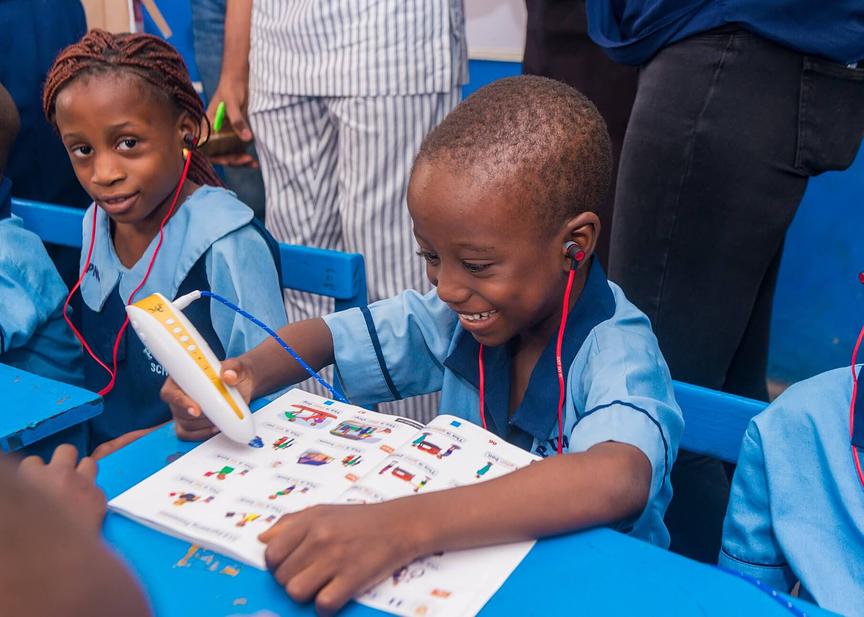What we do?
Using our Mavis Talking Books and Mavis Education Model we help children in unserved or underserved communities gain access to quality basic education, especially in literacy and numeracy, in a language that they understand.
Over 8,000 in-school and out-of-school children in Lagos State and the FCT territories of Nigeria have benefited from our innovation through literacy and numeracy programs funded by UK Aid and the US Embassy.
Test results show that out-of-school children using our Mavis Talking Books performed 37% better than those going to nearby public and private schools. A new program in the North East funded by the Borno State Government and in collaboration with local partners has started and intends to reach 10,000 children with our materials.
Why we do it?
When we began our business, we were selling a device to help children take notes in class and be able to play them back later. However, we kept hearing school directors say that parents were concerned that their children only spoke English and could not speak their local languages (Hausa, Igbo, Yoruba, etc.). This led us to develop the language learning series of our talking books.
As we attended conferences and seminars, we began to grasp the extent of the challenges with basic education in Nigeria – especially in public primary schools– and learned of the large number of out-of-school children.
The Federal Ministry of Education estimates that 50% of in-school children are not learning because they cannot read or write. Around 84% of children in the lowest economic quartile cannot read at all.
We also learned that Nigeria has the largest number of out-of-school children in the world, with recent estimates by UNICEF of over 13.2 million children not going to school. We felt that nobody was doing much about this.
This led us to developing the core education series of the Mavis talking books, starting with the Hausa-to-English book, which won the global 2017 British Council ELTons Award (English Language Teaching Innovations) in the local innovation category.
We have also developed English with phonics books for Grades 1 – 4, mathematics for Grades 1 – 4, rhymes books and more to help improve literacy and numeracy skills of children (and adult learners too).
We have won numerous awards since then, including from United Nations' International Telecommunication Union (ITU), Vivatech in France, and BusinessDay.
Our Goal
To scale our interventions to provide quality basic education to millions of children (in-school and out-of-school) in Nigeria and across Africa through strategic partnerships and support from development partners, donors and governments.


